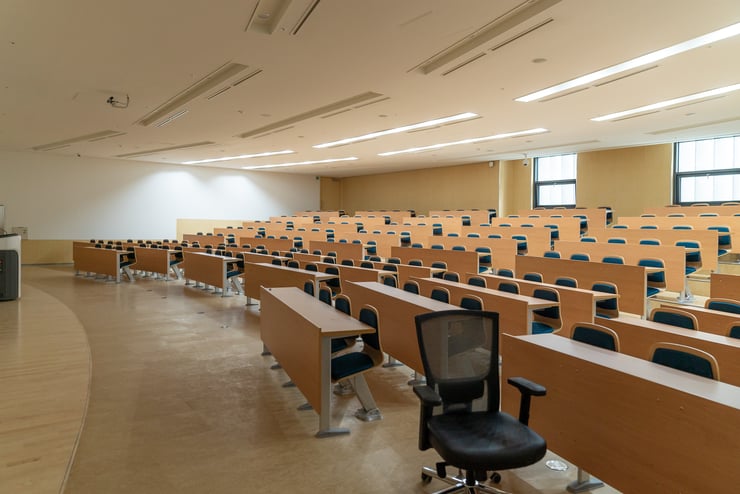In between Zoom calls yesterday with family and watching The Fab Five 30 for 30, I remembered my first college visit. Specifically, April 5, 1993. I was sitting on the edge of a hotel room bed in Raleigh, NC, despondent. Chris Webber had called a timeout his University of Michigan Wolverines did not have, handing the national championship over to Dean Smith's UNC squad. I was in Raleigh touring NC State, one of four college visits my mom had meticulously mapped out that spring break. We also hit Clemson, Wake Forest, and Georgia Tech — which my mom would tell me years later, "you weren't smart enough for Tech." She was right because moms always are. Thanks, mom.
I was lucky to have this amount of support when I was making my college decision. Someone always there to answer my questions or know which ones to ask. Many students do not have this level of support, increasing the responsibility of colleges and universities to find creative ways to answer the needed questions. And many schools are answering the call (and making them – more on that below).
In conversations with current and former clients last week, we heard mostly positive news related to deposits. But almost all of our conversations came with the expected caveat. It all depends on if schools reopen this fall. Schools are beginning to shift the focus from yield to strategies to reduce melt. This is new territory for a lot of schools, and it's going to be a necessity throughout the summer.
Making the Calls
While late March and April were largely about technology and innovation, May is going old school. Colleges and universities are turning to their phones to check in personally on students and parents and it is being well received.
From one of those conversations last week:
"We're in constant contact with current and prospective students and families – using employees who may not have as much work to do from home. That has also been pretty successful."
FAFSA Declines
FAFSA renewals are down 5% from last year. More troubling, almost 250,000 fewer returning students from the lowest-income backgrounds have renewed their FAFSA for the 2020-21 cycle. This data tracks with our most recent survey, in which 26% of current college students say they won't return this fall or it's too soon to say.
Consumers Will Lead the Way
This recent post from my colleague Sara Wallace unpacks the rise in traditional media since March, quality over quantity, the rising expectations on brands, and how consumers are controlling the narrative for every industry — including higher ed.











